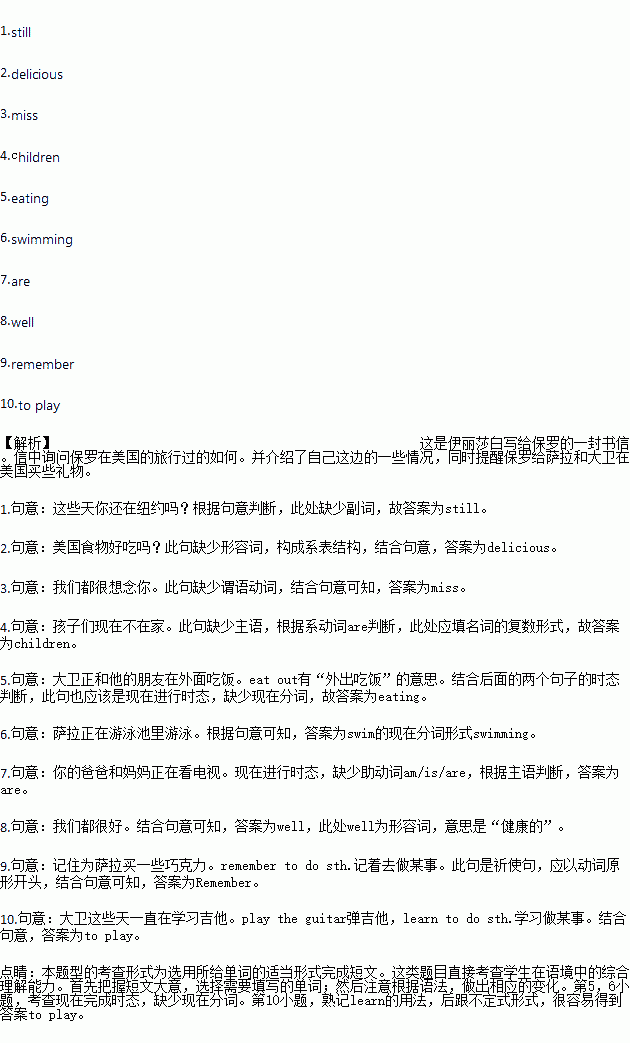题目内容
play, delicious, miss, eat, still, child, remember, be ,swim,
Dear Paul:
How’s your trip in the US? Are you 1. in New York these days? Is American food 2.?Are the people there friendly? We all 3. you very much.The 4. are not at home now.David is 5. out with his friends.Sarah is 6. in the pool.Your father and mother 7. watching TV.We are all very 8..Just enjoy(享受)your trip. Well.9..to buy some chocolate for Sarah.She likes it very much.David is learning 10. the guitar these days.Please buy some CDs for him.We wish to see you soon.
Elizabeth
练习册系列答案
 天天向上一本好卷系列答案
天天向上一本好卷系列答案 小学生10分钟应用题系列答案
小学生10分钟应用题系列答案
相关题目

